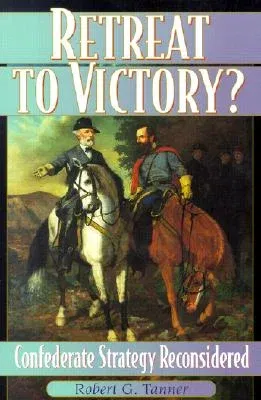Did Confederate armies attack too often for their own good? Was the
relentless, sometimes costly effort to preserve territory a blunder? Why
great battles in Pennsylvania, Maryland, Virginia, and Tennessee rather
than well-laid ambushes in Alabama's sandhills or the pine forests of
the Carolinas? These questions about Confederate strategy have dogged
historians since Appomattox. Many have come to believe that the South
might have won the Civil War if it had only avoided head-on battles,
conducted an aggressive guerrilla campaign, and maneuvered across wide
swaths of territory to exhaust the Union's willingness to continue the
war. Retreat to Victory? Confederate Strategy Reconsidered challenges
this widely held theory. Robert G. Tanner argues that deep retreats and
battle avoidance (the strategy of maneuver rather than combat) were not
available to Southern leaders in planning their wartime strategy. The
South fought as it did for valid reasons, according to Tanner, and this
book examines these reasons in detail, including the South's need to
protect its slave-based economy, to establish a state's rights-oriented
government, and to win independence from the Union. Tanner uses Prussian
military theorist Carl von Clausewitz's classic On War as a means for
evaluating Confederate actions. On War provides a single measure for
testing claims that the South could have prevailed by avoiding battles
and forcing the Union to hold large tracts of land. Provocative and
carefully researched, Retreat to Victory offers a fresh perspective on
Confederate strategy and makes an important contribution to the field
that no serious student of American history will want to miss.

